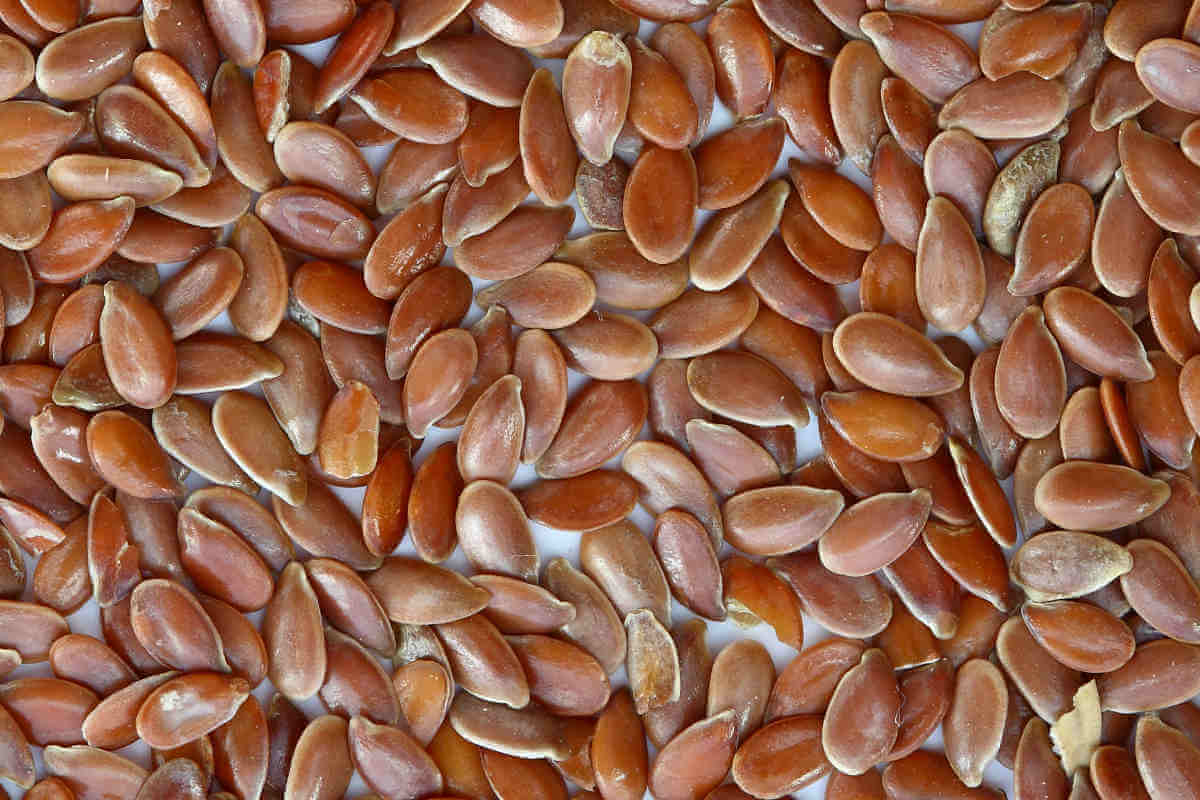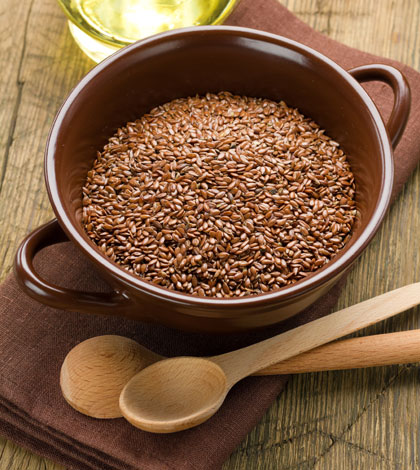More
Why are flaxseeds good for us? | Possible
Medical Reviewed by Ashwathy V. Pillai, Postgraduate Degree in Dietetics & Applied Nutrition
Twitter user Chandrashekhar had this question:
Why are flaxseeds so good for our health? (Diet query of the day)
— CJ (@JagtianiShekhar) January 16, 2014
Hi Chandrashekhar,
To answer your question on flaxseeds, let’s just say that all good things come in small packages.
Flaxseeds are an outstanding source of protein and fibre. These are available through supplement tablets, as well as in ground and oil form.
Let us just enumerate the nutrients contained in these small seeds:

1. Omega-3 essential fatty acids:
Omega-3 fatty acids are called essential as our bodies can’t produce them. They need to be supplemented through the diet.
They are known to have heart-healthy effects. These fatty acids remove the bad cholesterol from the blood vessels and thus prevent the risk of heart attack and stroke.
2. Lignans:
They contain both plant oestrogen andantioxidant qualities. Flaxseeds are known to contain 75 to 800 times more lignans than other plant foods.
3. Proteins and minerals:
They are one of the good sources of protein for vegetarians. Apart from this, flax seeds are also a good source of minerals such as zinc, magnesium, copper, boron, and soluble fibre.
4. Soluble and insoluble fibres:
These fibres are important for weight loss as they keep you full for longer, reduce cholesterol level and also prevent constipation.
Flax Seeds Health Benefits
Evidence proves that flaxseeds may reduce the risk of heart disease, cancer, stroke and diabetes.
1] Prevents cancer:
Flaxseeds are known to reduce the risk of certain cancers such as breast cancer, prostate cancer and colon cancer.
The lignans present in flax seeds are known to provide some protection against cancers too.
2] Reduces swelling of hands and feet (oedema):
Flax seeds could be an effective remedy for oedema (fluid retention in hands and feet). The anti-inflammatory property of flax seeds aids in reducing swelling.
Recipe Tip:
Flax seeds can be incorporated into a delicious detox drink. Add one teaspoon of ground flaxseeds to a glass of warm water. Drink it 2 times daily. It is also one of the safe and best natural ways to treat swollen feet and hands as well.
3] Relieves menstrual cramps:
Flaxseeds also reduce prostaglandin levels in the body and thus relieve you from menstrual cramps and pain.
4] Promotes heart health:
Flaxseeds prevent the risks of cardiovascular disease and also lung disease.
Plant omega-3s are known to help the cardiovascular system by normalising the heartbeat and new research also suggest that flax seeds lower blood pressure.
It has come to light that diets rich in omega-3 fatty acids help prevent hardening of the arteries and keep plaque from being deposited in the arteries.
Thus preventing the risk of heart attack and stroke.
5] Reduces cholesterol level:
Introducing a regular amount of flaxseed in your diet helps in reducing cholesterol levels.
Women during menopause showed a decrease in bad cholesterol or LDL after they ate 4 tablespoons of ground flaxseed every day for a year.
6] Prevents and treats diabetes:
Flaxseeds are known to normalise blood sugar level on daily consumption. The antioxidants present in flaxseeds prevent the damage to nerves and other organs, which can occur in advanced diabetes,
Hope this helps you!
Note: Please do not construe this as medical advice. Please refer to a qualified doctor for medical opinions.
Read about:High-fiber foods help weight loss

So how much flax seed powder can we consume each day safely?
Hi Swati,
You can have 2-3 tsp of flax seeds per day safely.
Can we take Roasted n salted flax seeds or only raw seeds needs to take.
Hi Rajnish,
It is better to take raw flax seeds but you need to chew properly. In the case of roasting, it is advisable to roast in a low flame and keep in air tight containers otherwise it will become rancid.